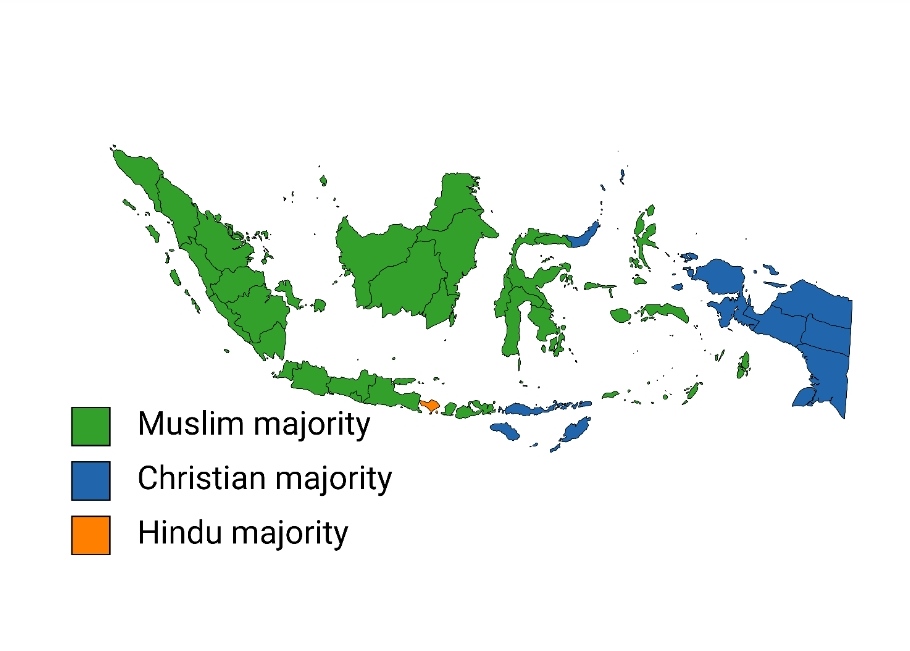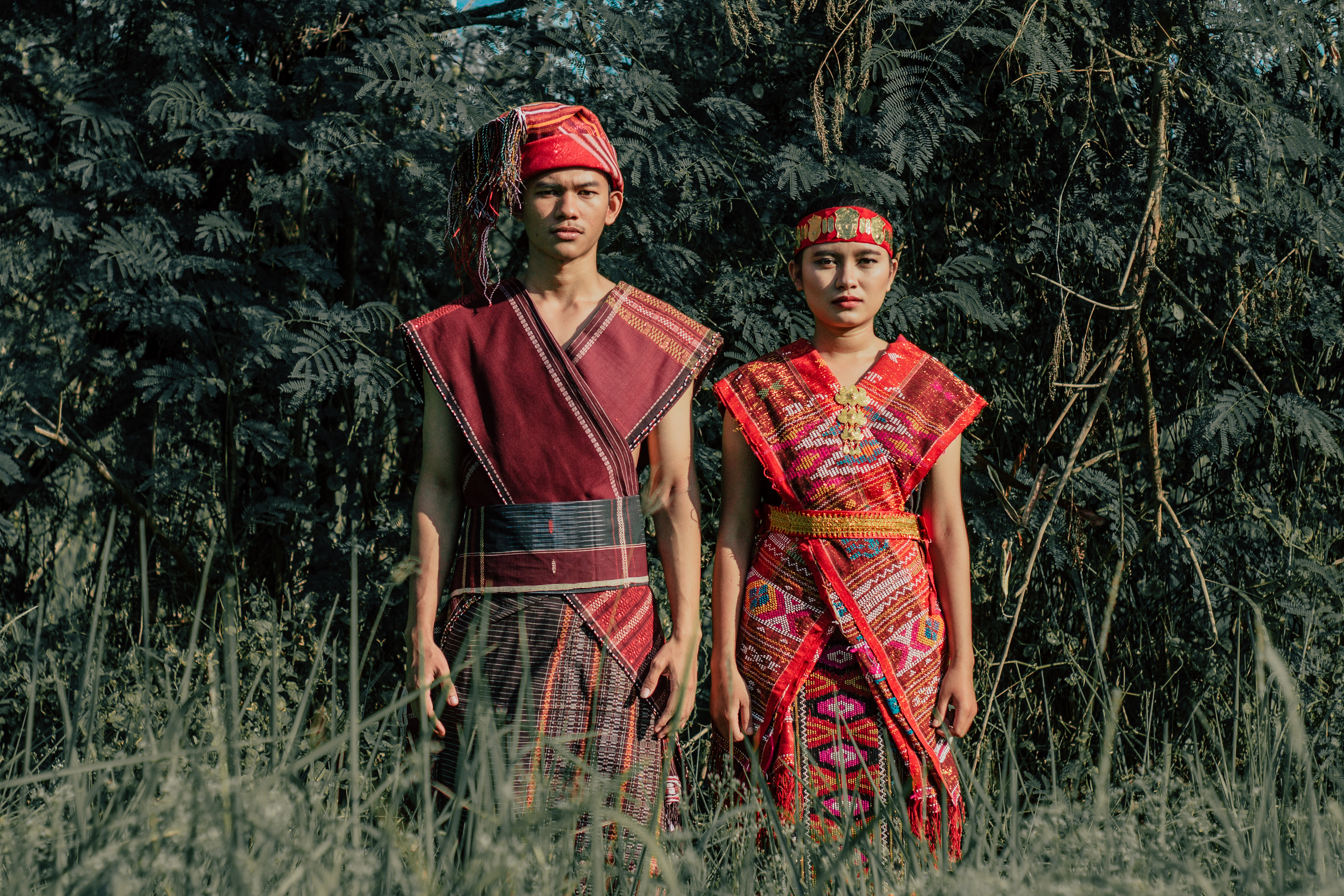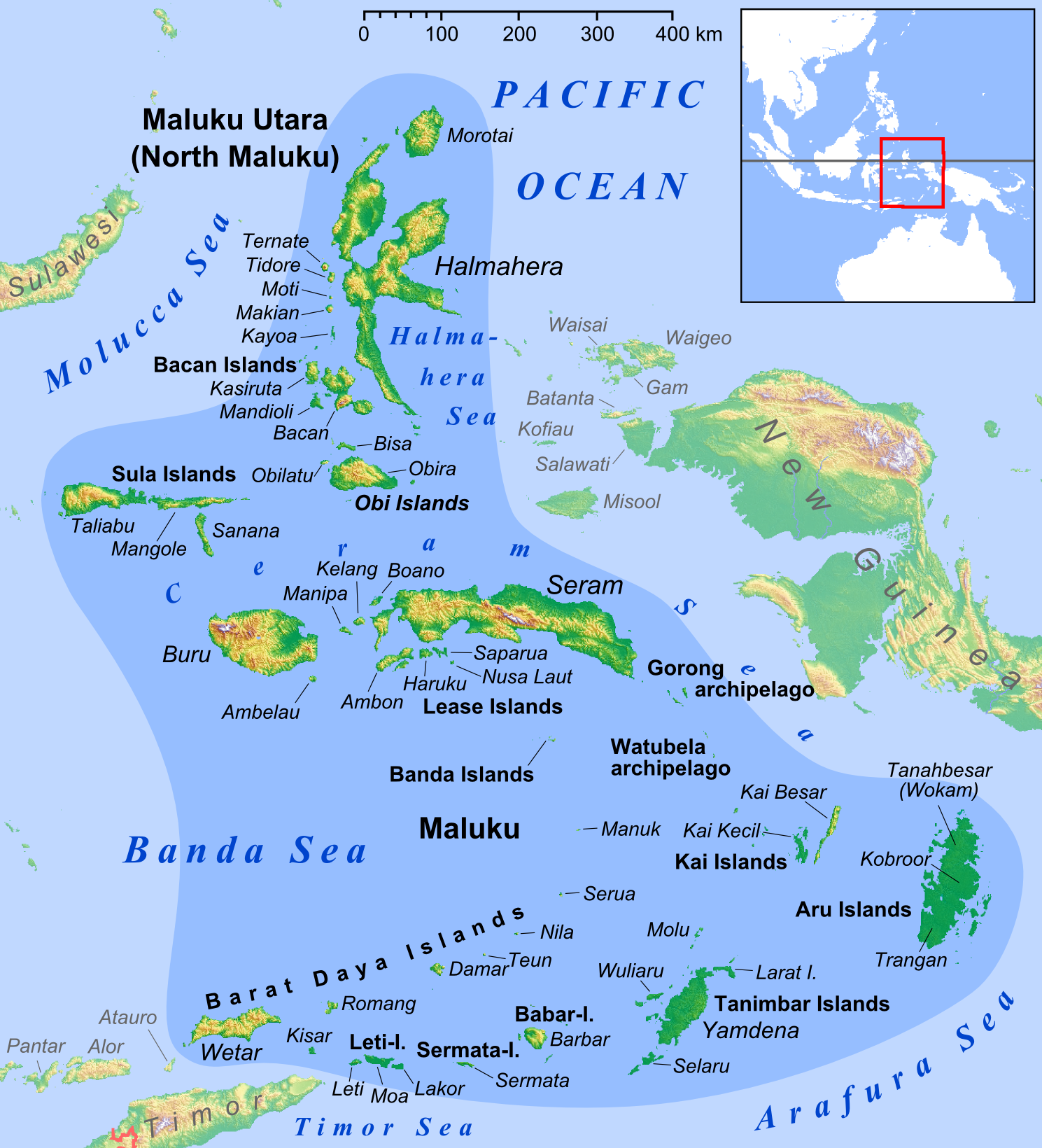|
Imam Bonjol
Tuanku Imam Bonjol (1772 – 6 November 1864), also known as Muhammad Syahab, Peto Syarif, and Malim Basa, was one of the most popular leaders of the Padri War, Padri movement in Central Sumatra. He was declared a National Hero of Indonesia. Biography Tuanku Imam Bonjol was born in Bonjol, Pasaman Regency, Pasaman, West Sumatra. His family, of Moroccan people, Moroccan origin, came from Sungai Rimbang, Suliki, Limapuluh Koto Regency, Limapuluh Koto. His parents name were Bayanuddin (father) and Hamatun (mother). He was immersed in Islamic studies as he grew up, studying first from his father and later under various other Muslim theologians. After founding the state of Bonjol, Syarif became involved in the Adat-Padri controversy as a Padri leader. The Padri movement, which has been compared to the Ahlus Sunnah wal Jamaah (Sunni) school of Islam in the now Saudi Arabia, was an effort to return the Islam of the area to the purity of its roots by removing local distortions li ... [...More Info...] [...Related Items...] OR: [Wikipedia] [Google] [Baidu] |
Bonjol
Bonjol is name of a district (kecamatan) in the Pasaman Regency (kabupaten Pasaman), province West Sumatera, Indonesia. It is famous especially for its location as it lies just at the equator line. Bonjol is also the place of birth of Tuanku Imam Bonjol, a national hero in the struggle against Dutch rule. Almost 75% of the population are farmers. Bonjol lies around the Trans-Sumatran Highway, approximately 60 km north of Bukittinggi. Every bus going on the route between Medan and Bukittinggi (or Padang Padang () is the capital and largest city of the Indonesian province of West Sumatra. With a Census population of 1,015,000 as of 2022, it is the 16th most populous city in Indonesia and the most populous city on the west coast of Sumatra. Th ...) goes through it and crosses the equator there. References See also * Ruit van Bonjol Populated places in West Sumatra {{indonesia-stub ... [...More Info...] [...Related Items...] OR: [Wikipedia] [Google] [Baidu] |
Minangkabau People
Minangkabau people ( min, Urang Minang; Indonesian or Malay: ''Orang Minangkabau'' or ''Minangkabo''; Jawi: منڠكبو), also known as Minang, are an Austronesian ethnic group native to the Minangkabau Highlands of West Sumatra, Indonesia. The Minangkabau's West Sumatran homelands was the seat of the Pagaruyung Kingdom, believed by early historians to have been the cradle of the Malay race, and the location of the Padri War (1821 to 1837). Minangkabau are the ethnic majority in West Sumatra and Negeri Sembilan. Minangkabau are also a recognised minority in other parts of Indonesia as well as Malaysia, Singapore and the Netherlands. Etymology There are several etymology of the term Minangkabau. While the word "kabau" undisputedly translates to "Water Buffalo", the word "minang" is traditionally known as a pinang fruit that people usually chew along the 'Sirih' leaves. But there is also a folklore that mention that term Minangkabau (Minangkabau: ''Minang'' Jawi script: � ... [...More Info...] [...Related Items...] OR: [Wikipedia] [Google] [Baidu] |
Indonesian Muslims
Islam is the largest religion in Indonesia, with 86.7% of the Indonesian population identifying themselves as Muslim in a 2018 survey. Indonesia is the most populous Muslim-majority country, with approximately 231 million adherents. In terms of denomination, the overwhelming majority (98.8%) are Sunni Muslims, while 1-3 million (1%) are Shia, and are concentrated around Jakarta, and about 400,000 (0.2%) Ahmadi Muslims. In terms of schools of jurisprudence, based on demographic statistics, 99% of Indonesian Muslims mainly follow the Shafi'i school, although when asked, 56% does not adhere to any specific school. Trends of thought within Islam in Indonesia can be broadly categorized into two orientations: "modernism", which closely adheres to orthodox theology while embracing modern learning, and "Traditionalism (Islam in Indonesia), traditionalism", which tends to follow the interpretations of local religious leaders and religious teachers at Islamic boarding schools (''p ... [...More Info...] [...Related Items...] OR: [Wikipedia] [Google] [Baidu] |
Indonesian Sunni Muslims
Indonesian is anything of, from, or related to Indonesia, an archipelagic country in Southeast Asia. It may refer to: * Indonesians, citizens of Indonesia ** Native Indonesians, diverse groups of local inhabitants of the archipelago ** Indonesian women, overview of women's history and contemporary situations * Indonesian language (Indonesian: ''Bahasa Indonesia''), the official language of Indonesia ** Indonesian languages, overview of some of the 700 languages spoken in Indonesia ** Indonesian names, customs reflecting the multicultural and polyglot nature of Indonesia * Indonesian culture, a complex of indigenous customs and foreign influences ** Indonesian art, various artistic expressions and artworks in the archipelago ** Indonesian cinema, a struggling and developing industry ** Indonesian literature, literature from Indonesia and Southeast Asia with shared language roots ** Indonesian music, hundreds of forms of traditional and contemporary music ** Indonesian philos ... [...More Info...] [...Related Items...] OR: [Wikipedia] [Google] [Baidu] |
National Heroes Of Indonesia
National Hero of Indonesia ( id, Pahlawan Nasional Indonesia) is the highest-level title awarded in Indonesia. It is posthumously given by the Government of Indonesia for actions which are deemed to be heroic, defined as "actual deeds which can be remembered and exemplified for all time by other citizens" or "extraordinary service furthering the interests of the state and people". The Ministry of Social Affairs gives seven criteria which an individual must fulfill, as follows: #Have been an Indonesian citizen who is deceased and, during his lifetime, led an armed struggle or produced a concept or product useful to the state; #Have continued the struggle throughout his life and performed above and beyond the call of duty; #Have had a wide-reaching impact through his actions; #Have shown a high degree of nationalism; #Have been of good moral standing and respectable character; #Never surrendered to his enemies; and #Never committed an act which taints his or her legacy. Nominations ... [...More Info...] [...Related Items...] OR: [Wikipedia] [Google] [Baidu] |
1864 Deaths
Events January–March * January 13 – American songwriter Stephen Foster ("Oh! Susanna", "Old Folks at Home") dies aged 37 in New York City, leaving a scrap of paper reading "Dear friends and gentle hearts". His parlor song " Beautiful Dreamer" is published in March. * January 16 – Denmark rejects an Austrian-Prussian ultimatum to repeal the Danish Constitution, which says that Schleswig-Holstein is part of Denmark. * January 21 – New Zealand Wars: The Tauranga campaign begins. * February – John Wisden publishes '' The Cricketer's Almanack for the year 1864'' in England; it will go on to become the major annual cricket reference publication. * February 1 – Danish-Prussian War (Second Schleswig War): 57,000 Austrian and Prussian troops cross the Eider River into Denmark. * February 15 – Heineken brewery founded in Netherlands. * February 17 – American Civil War: The tiny Confederate hand-propelled submarine ''H. L. Hunley'' s ... [...More Info...] [...Related Items...] OR: [Wikipedia] [Google] [Baidu] |
1772 Births
Year 177 ( CLXXVII) was a common year starting on Tuesday (link will display the full calendar) of the Julian calendar. At the time, it was known as the Year of the Consulship of Commodus and Plautius (or, less frequently, year 930 ''Ab urbe condita''). The denomination 177 for this year has been used since the early medieval period, when the Anno Domini calendar era became the prevalent method in Europe for naming years. Events By place Roman Empire * Lucius Aurelius Commodus Caesar (age 15) and Marcus Peducaeus Plautius Quintillus become Roman Consuls. * Commodus is given the title ''Augustus'', and is made co-emperor, with the same status as his father, Marcus Aurelius. * A systematic persecution of Christians begins in Rome; the followers take refuge in the catacombs. * The churches in southern Gaul are destroyed after a crowd accuses the local Christians of practicing cannibalism. * Forty-seven Christians are martyred in Lyon (Saint Blandina and Pothinus, bishop ... [...More Info...] [...Related Items...] OR: [Wikipedia] [Google] [Baidu] |
History Of Indonesia
The history of Indonesia has been shaped by geographic position, its natural resources, a series of human migrations and contacts, wars of conquest, the spread of Islam from the island of Sumatra in the 7th century AD and the establishment of Islamic kingdoms, as well as by trade Bowls, Jars, Jugs and so on, economics and politics. Indonesia is an archipelago, archipelagic country of 17,000 to 18,000 islands (8,844 named and 922 permanently inhabited) stretching along the equator in South East Asia. The country's strategic sea-lane position fostered inter-island and international trade; trade has since fundamentally shaped Indonesian history. The area of Indonesia is populated by peoples of various migrations, creating a diversity of Culture of Indonesia, cultures, Ethnic groups of Indonesia, ethnicities, and Languages of Indonesia, languages. The archipelago's landforms and climate significantly influenced agriculture and trade, and the formation of states. The boundaries of t ... [...More Info...] [...Related Items...] OR: [Wikipedia] [Google] [Baidu] |
Batak
Batak is a collective term used to identify a number of closely related Austronesian ethnic groups predominantly found in North Sumatra, Indonesia, who speak Batak languages. The term is used to include the Karo, Pakpak, Simalungun, Toba, Angkola, and Mandailing which are related groups with distinct languages and traditional customs ('' adat''). Prehistory Linguistic and archaeological evidence indicates that Austronesian speakers first reached Sumatra from Taiwan and the Philippines through Borneo or Java about 2,500 years ago, and the Batak probably descended from these settlers. While the archaeology of southern Sumatra testifies to the existence of neolithic settlers, it seems that the northern part of Sumatra was settled by agriculturalists at a considerably later stage. Although the Batak are often considered to be isolated peoples thanks to their location inland, away from the influence of seafaring European colonials, there is evidence that they have been i ... [...More Info...] [...Related Items...] OR: [Wikipedia] [Google] [Baidu] |
Wahhabism
Wahhabism ( ar, ٱلْوَهَّابِيَةُ, translit=al-Wahhābiyyah) is a Sunni Islamic revivalist and fundamentalist movement associated with the reformist doctrines of the 18th-century Arabian Islamic scholar, theologian, preacher, and activist Muhammad ibn Abd al-Wahhab (). He established the ''Muwahhidun'' movement in the region of Najd in central Arabia as well as South Western Arabia, a reform movement that emphasised purging of rituals related to the veneration of Muslim saints and pilgrimages to their tombs and shrines, which were widespread amongst the people of Najd. Ibn ʿAbd al-Wahhab and his followers were highly inspired by the influential thirteenth-century Hanbali scholar Ibn Taymiyyah (1263–1328 C.E/ 661 – 728 A.H) who called for a return to the purity of the first three generations (''Salaf'') to rid Muslims of inauthentic outgrowths (''bidʻah''), and regarded his works as core scholarly references in theology. While being influenced by their ... [...More Info...] [...Related Items...] OR: [Wikipedia] [Google] [Baidu] |
Sulawesi
Sulawesi (), also known as Celebes (), is an island in Indonesia. One of the four Greater Sunda Islands, and the world's eleventh-largest island, it is situated east of Borneo, west of the Maluku Islands, and south of Mindanao and the Sulu Archipelago. Within Indonesia, only Sumatra, Borneo, and New Guinea, Papua are larger in territory, and only Java and Sumatra have larger populations. The landmass of Sulawesi includes four peninsulas: the northern Minahassa Peninsula, Minahasa Peninsula, the East Peninsula, Sulawesi, East Peninsula, the South Peninsula, Sulawesi, South Peninsula, and the Southeast Peninsula, Sulawesi, Southeast Peninsula. Three gulfs separate these peninsulas: the Gulf of Tomini between the northern Minahasa and East peninsulas, the Tolo Gulf between the East and Southeast peninsulas, and the Bone Gulf between the South and Southeast peninsulas. The Strait of Makassar runs along the western side of the island and separates the island from Borneo. Etymology ... [...More Info...] [...Related Items...] OR: [Wikipedia] [Google] [Baidu] |
Ambon Island
Ambon Island is part of the Maluku Islands of Indonesia. The island has an area of and is mountainous, well watered, and fertile. Ambon Island consists of two territories: the city of Ambon, Maluku, Ambon to the south and various districts (''kecamatan'') of the Central Maluku Regency to the north. The main city and seaport is Ambon, Maluku, Ambon (with a 2020 Census population of 347,288), which is also the capital of Maluku (province), Maluku Provinces of Indonesia, province, while those districts of Maluku Tengah Regency situated on Ambon Island had a 2020 Census population of 128,069. Ambon has an Pattimura Airport, airport and is home to the Pattimura University and Open University (Universitas Terbuka), state universities, and a few private universities, which include Darussalam University (Universitas Darussalam, UNDAR) and Universitas Kristen Indonesia Maluku (UKIM). Geography Ambon Island lies off the southwest coast of the much larger Seram island. It is on the north ... [...More Info...] [...Related Items...] OR: [Wikipedia] [Google] [Baidu] |








